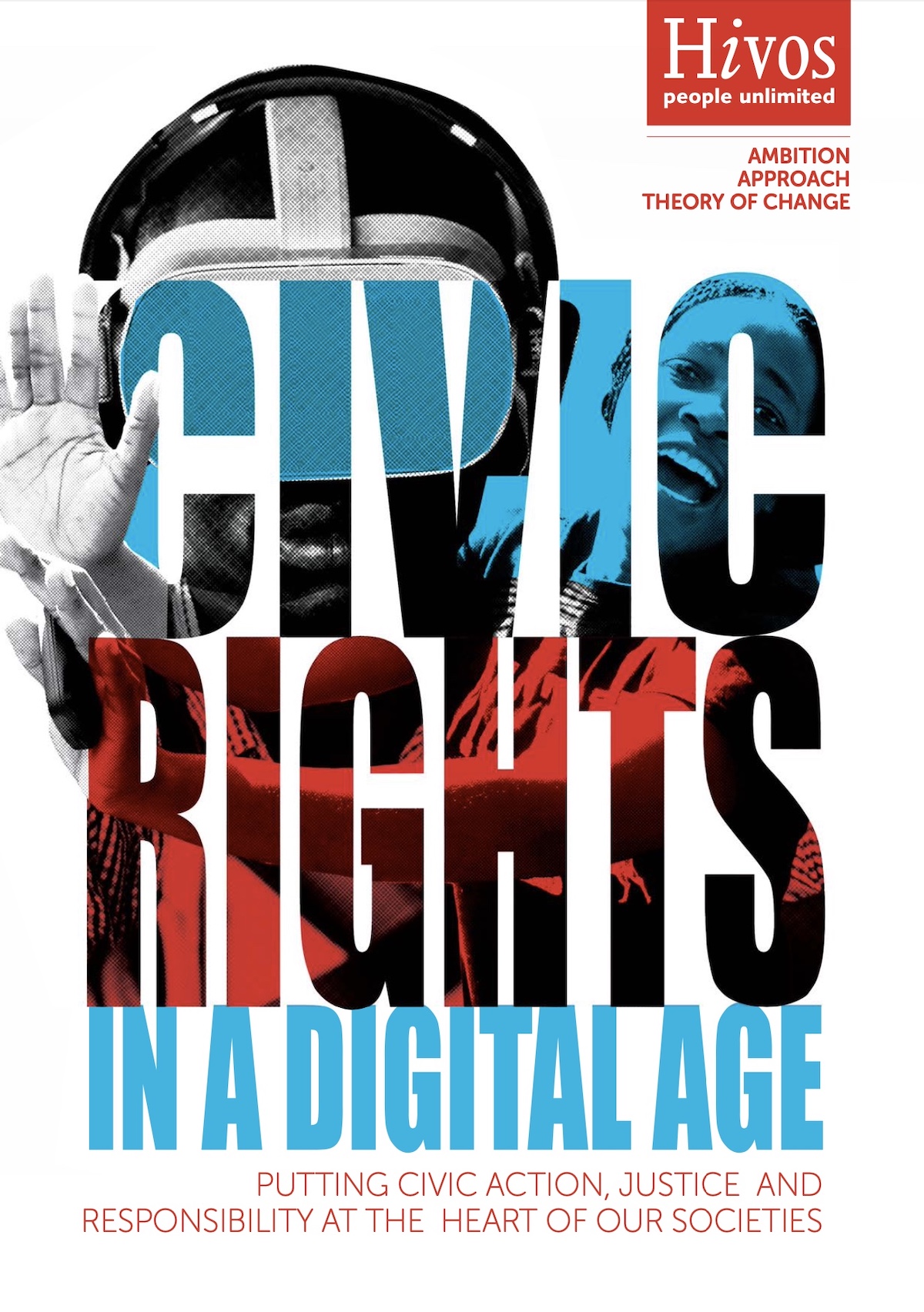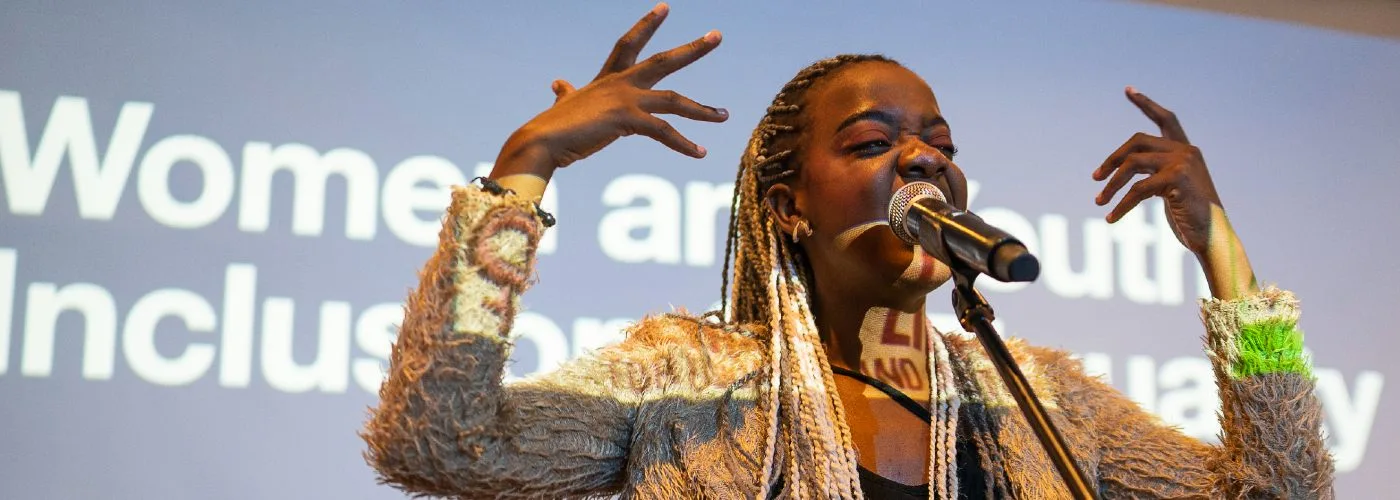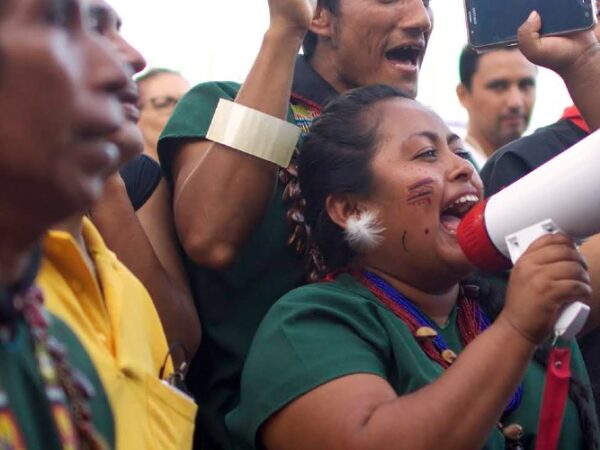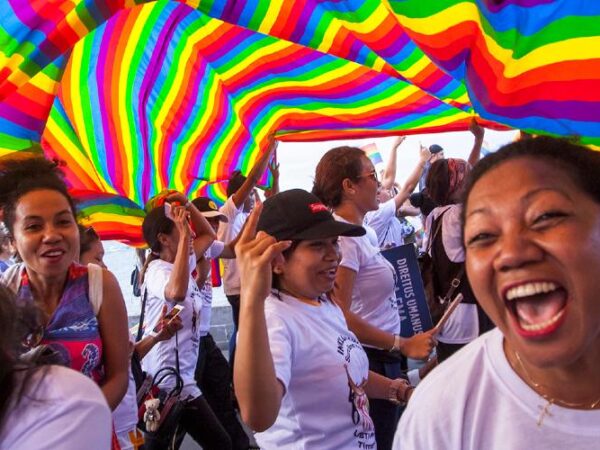Across the regions we work in, we observe shrinking civic space and freedom, the spread of narratives that divide people and undermine truth, deepening exclusion of the most marginalized people, and collapsing trust in democratic institutions. Corruption and tax avoidance remain major scourges. These challenges relate intimately to a global economic system that incentivizes exploitation of people and natural resources. They are magnified by rapid, unequal digitalization of our societies.
Yet, we also see vital opportunities to strengthen the people, initiatives and organizations who confront these challenges, and who imagine and push for alternatives. They work across civil society, academia, in the media and culture sectors – and with progressive allies in government and business. They are guided by social justice values, and they work to build a public sphere where people exercise agency, where their rights are protected, and which supports healthy, democratic debate.
Hivos works with them to put their agency and priorities at the center of global and local efforts to promote Civic Rights in a Digital Age. Deeper and broader collaboration between these diverse actors from the Global South is at the core of our approach.
Our vision:
A public sphere where civic rights are protected, where inclusive public debate flourishes, and where people exercise influence and agency so that technology and public resources are used justly and responsibly.
Our approach
To safeguard Civic Rights in a Digital Age, we work to achieve three impact goals: vibrant civic spaces; responsible use of technology, and just use of public resources. We do this by following four pathways of change based on strengthening capacities for digital activism, campaigning, content creation and collaboration.
1. Building civic influence
At the center of this work are diverse civic actors in the Global South, including frontrunners in academia and independent media. They build public awareness, influence public regulation, and act as independent watchdogs. They work to increase the engagement of rightsholders and social justice organizations in digital rights efforts. This is crucial if we want the concerns of those impacted the most to be reflected in public policy and practice.
2. Defending activists
The aim of this pathway is to ensure that human rights defenders, social justice activists and content creators, and independent media are able to make safe, responsible and effective use of data and technology. Their work is increasingly digital and thereby vulnerable to digital threats like surveillance, theft and misuse of sensitive data, targeted disinformation, and deep fakes that discredit and attack activists and other civic leaders.
3. Reshaping narratives
Prevailing narratives often legitimize existing power relations. Reshaping those narratives involves strengthening diverse voices that contest the status quo, while increasing public understanding of and support for humane and just alternatives. At the center of this work are pioneering independent media producers, artists, journalists, and civil society groups. They challenge police corruption, discrimination, and outdated gender norms with fresh, creative perspectives. They build media literacy and articulate community-centered alternatives to the prevailing model of top-down digitalization.
4. Influencing public spending
Social justice actors and rightsholders have stronger influence on (local) public spending priorities, and governments are held to account for these. Government openness and responsiveness at the local level is essential because it is the most vulnerable citizens (subject to exclusion and climate impacts) who depend on the just use of public resources by local authorities

Key Civic Rights in a Digital Age programs
Hivos has built up extensive experience and networks in the field of accountability and freedom of expression through a wide range of programs, including:
- Digital Defenders Partnership, hosted by Hivos, protects rights activists under (digital) attack and helps them navigate the digital highway safely, while strengthening rapid-response networks.
- Through Resources of Open Minds (R.O.O.M.) we support artists and creative hubs around the world in diversifying dialogue and using the power of art to spark debates and bring about structural social change.
- African Crossroads is a community of future-oriented African thinkers and doers. They meet every year to reflect critically on the most cutting-edge developments anchored in African intellectual and technological traditions.
- The Freedom of Expression and Information in Tunisia project furthers efforts to improve journalists’ and media actors’ ability to effectively exercise their rights to Freedom of Expression. It also promotes participatory and inclusive ways of developing and implementing a strong legal framework that protects freedoms of expression and information, and campaigns to increase public understanding and support.
- PROTECT works towards free and open societies, where civil society – including infomediaries – are able to hold governments to account, make critical data accessible and understandable, and drive social and political change for the better for all groups in society.
- Voices and Actions for Accountability in Malawi strengthens the capacity of Malawian CSOs, media and selected local government authorities to gather evidence, analyse and publish their findings on public budgets and procurement processes in Malawi. The aim is to make these more viable, inclusive and transparent.
Find a full overview of all our Civic Rights in a Digital Age programs here.
Civic Rights in a Digital Age and Hivos
Hivos sets great store by being accountable and transparent ourselves. We will ensure our partners have a greater say in setting priorities for and managing programs, and increasingly, Hivos too. Governance and decision-making will be done more jointly with these partners. In the (digital) safety and security realm, we will put more emphasis on setting an example ourselves, while at the same time continuing to offer services and tools to activists and civil society.


